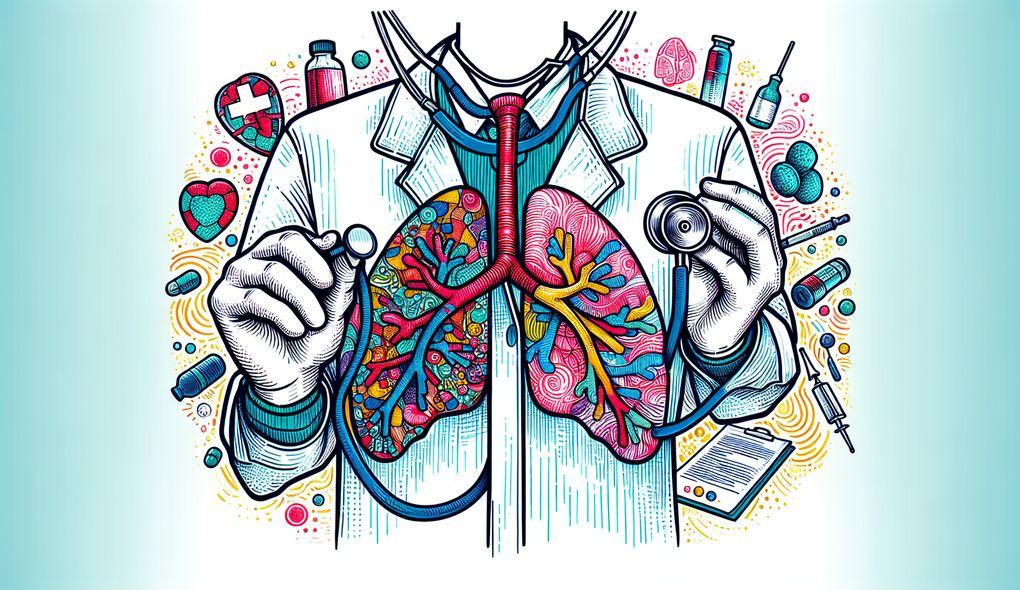Can you provide an example of a challenging communication situation with a patient, and how you handled it?
SENIOR LEVEL

Sample answer to the question:
One challenging communication situation I faced was with a patient who had a severe respiratory condition and was resistant to treatment. The patient was frustrated and felt hopeless about their condition, which made it difficult for them to trust the medical team. I listened attentively to their concerns and validated their emotions, acknowledging the difficulty of their situation. I then explained the treatment options in detail, emphasizing the potential benefits and addressing any potential side effects or concerns they had. I also involved the patient's family in the discussion to ensure they had a support system. By showing empathy, providing clear explanations, and involving the family, I was able to build trust and facilitate a shared decision-making process.
Here is a more solid answer:
One challenging communication situation I faced was with a patient who had a severe respiratory condition and had difficulties understanding their treatment plan. The patient was feeling overwhelmed and confused about the medications and therapy prescribed. To address the situation, I took a patient-centered approach and spent extra time explaining the treatment plan in a simplified manner, using visual aids and written materials. I also ensured that the patient had the necessary support at home by involving their family in the education process and providing them with additional resources. Additionally, I followed up with the patient regularly to assess their understanding and address any further questions or concerns. By tailoring the communication to the patient's needs, involving their family, and providing ongoing support, I was able to enhance their understanding and adherence to the treatment plan.
Why is this a more solid answer?
The solid answer addresses the question by providing a specific example of a challenging communication situation with a patient and explaining how it was handled. It includes more specific details and addresses the evaluation areas and skills required for the role of a pulmonologist, such as communication skills, empathy, patient education, collaboration, and problem-solving. The answer could still be improved by providing more information about the specific respiratory condition and treatment involved and the outcomes of the situation.
An example of a exceptional answer:
One challenging communication situation I faced was with a patient who had advanced stage COPD and was struggling to quit smoking, which was exacerbating their symptoms. The patient had a history of multiple failed quit attempts and was hesitant to try again. To address this situation, I took a multidisciplinary approach by collaborating with a respiratory therapist and a behavioral health specialist. Together, we developed a comprehensive tobacco cessation plan tailored to the patient's individual needs and preferences. I provided intensive education about the detrimental effects of smoking on respiratory health and emphasized the potential benefits of quitting. I also offered ongoing support through regular counseling sessions, group therapy, and access to nicotine replacement therapies. Additionally, I engaged the patient's family in the process to create a supportive environment at home. Over time, the patient's motivation and confidence increased, and they successfully quit smoking, resulting in a significant improvement in their symptoms and quality of life.
Why is this an exceptional answer?
The exceptional answer addresses the question by providing a detailed and specific example of a challenging communication situation with a patient and explaining how it was handled. It demonstrates a high level of skill in communication, empathy, patient education, collaboration, and problem-solving, which are essential for the role of a pulmonologist. The answer also includes the involvement of a multidisciplinary team and the use of evidence-based strategies for tobacco cessation. It could be further improved by providing more information about the specific interventions used and the long-term outcomes for the patient.
How to prepare for this question:
- Reflect on past challenging communication situations with patients and think about the strategies you used to address them.
- Familiarize yourself with evidence-based communication techniques, such as active listening, empathy, and shared decision-making.
- Stay updated on the latest advancements in respiratory diseases and treatments, as well as strategies for patient education and engagement.
- Practice explaining complex medical concepts in a simple and understandable manner.
- Develop your collaboration skills by seeking opportunities to work with multidisciplinary healthcare teams.
- Consider obtaining additional training or certification in communication skills or patient education.
- Be prepared to provide specific examples from your past experiences during the interview.
What are interviewers evaluating with this question?
- Communication Skills
- Empathy
- Patient Education
- Collaboration
- Problem-Solving

